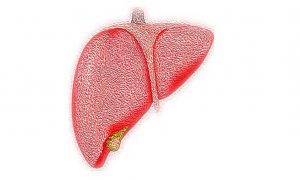There is evidence that certain lifestyle changes can certainly reduce the risk of breast cancer.
Breast Cancer Awareness Month: The current incidence of breast cancer is increasing. Breast cancer overtook cervical cancer as the most common cancer in women and now accounts for nearly 14 % of cancers in Indian women. Every 4 minutes, there is an Indian woman diagnosed with breast cancer. It is on the rise both in urban and rural India. The earlier it is diagnosed, the better the survival
There are multiple risk factors for breast cancer. Some are modifiable and some are non-modifiable. Some non-modifiable risk factors include
- Getting older
- Having a late menopause
- Having a strong family history of breast or ovarian cancer
- Genetic factors
We cannot do much about these risks, but other risk factors can be modified to reduce the risk of developing breast cancer. There is evidence that certain lifestyle changes can certainly reduce the risk. Dr Aruna Muralidhar, MD, MRCOG(UK), FRCOG(UK), Senior consultant obstetrician and gynaecologist, Fortis La Femme Hospital, Richmond Road, Bangalore shares 9 lifestyle changes that can help in the prevention of breast cancer.
- Maintaining a healthy weight- The Body Mass Index or BMI is a good parameter to understand. It is the weight in kgs divided by the square of height in metres. Maintaining a healthy BMI of less than 24 with a waist circumference of fewer than 85 cms in women helps in reducing the risk of many lifestyle-related disorders. Estrogen is produced mainly by ovaries until menopause. After menopause, the estrogen produced by the abdominal fat increases the risk of breast cancer.
- Being physically active- Having a regular routine for physical activity certainly reduced the risk of cancer in general. The recommendation is 150-300 minutes of moderate exercise per week. The possible reason for this benefit is not known but can be contributed to the effects of exercise on body weight, fat, inflammation, hormones, and energy levels.
- Reducing alcohol intake- There is enough evidence that drinking alcohol increases the risk of breast cancer. Women who consume 1 drink per day have a 7-10% increase in risk which increases to 20% if 2-3 drinks are consumed. Hence, it is best not to have alcohol at all.
- Tobacco and both passive and active smoking may increase the risk of breast cancer although the evidence is only suggestive and not supportive.
- Breastfeeding and sustaining it for longer- Breastfeeding one’s babies certainly confers a protective effect against breast cancer. The risk further reduces if it is continued for more than 1 year. One of the reasons is that the total of menstrual cycles in a women’s life is reduced.
- Limiting the use of oral contraceptive pills and hormone replacement therapy- There is a small increase in the risk of breast cancer in women who use oral contraceptive pills for more than 5 years. There is one additional case of breast cancer for every 7690 women who use hormonal contraception for at least one year. In women who need hormone replacement therapy (HRT) or menopausal hormone therapy due to severe symptoms; there can be a combined decision with the woman and the gynaecologist balancing risks and benefits including the risk of heart disease and osteoporosis etc. If HRT is considered necessary, it should be used at the lowest dose possible and for the shortest possible time.
- Diet- Well-balanced, timely, mindful meals work well for keeping most health problems at bay. No one diet can help reduce the risk of breast cancer but a fatty meal is to be avoided. A Mediterranean diet with a focus on a plant-based diet with whole grains, the use of extra-virgin olive oil, and mixed nuts may offer some benefits. However, the Indian diet is perfectly alright as long as a good proportion of fruits and vegetables are consumed along with healthy amounts of nuts. Certain vitamins, such as vitamin C, vitamin D, if supplemented may reduce the risk of breast cancer.
- Certain other factors which may possibly contribute to increasing the risk have to be reduced as a society at large. For example, chemicals and substances found in plastics, cosmetics, toiletries, pesticides, polychlorinated biphenyls, etc may affect breast cancer risk. The exposure to these must be limited as far as possible. Changes in diurnal rhythm such as in night shifts are also being studied as a possible factor for increased risk of breast cancer in Indian cities.
- The other important lifestyle change or rather habit that needs to be inculcated is Breast Self-Examination (BSE). Examination of one’s breasts after a period would help one identify lumps and changes in the breast early. Earlier consultation and diagnosis can certainly help save lives.



































